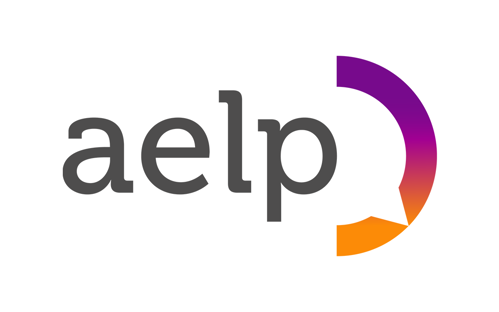Delivering vital qualifications results in large losses for training providers
New research published today – Spelling It Out, Making It Count – by the Association of Employment and Learning Providers (AELP) reveals that up until the end of 2023, the delivery of a Functional Skills qualification for those in apprenticeships could incur as much as a £440 loss per individual.
Apprenticeships are the only vocational qualification that have literacy and numeracy qualifications as an exit requirement. Yet the content of Functional Skills – now almost indistinguishable from GCSEs following reforms in 2019 – mean that there is no widely effective means of learning and evidencing these skills in an applied context. Furthermore, their lack of viability and the perceived difficulty of them amongst learners with more practical approaches to learning, mean that Functional Skills qualifications are reducing overall apprenticeship achievement rates. Given the government’s stated desire to raise this from the current 52% to 67% by next year, this is clearly a key concern that requires urgent attention.
"Spelling It Out, Making It Count" written by AELP’s Research Associate Dr Chihiro Kobayashi and Director of Strategy Paul Warner, and Peter Dickinson of Warwick Institute for Employment Research (IER), and supported by Edge Foundation, Gatsby Charitable Foundation and with contributions from the Association of Colleges (AoC), looks in detail at the effect of reforms to Functional Skills content in 2019, particularly in light of apprenticeship requirements.
Looking in depth at delivery costs, it finds that even given the recent changes to funding, losses will continue to be incurred at a time when the training infrastructure is already in one of its most perilous positions ever. Overall, the prospects for social mobility that vocational skills training can offer are being undermined by qualifications that bear increasingly little relation to the workplace, and are in any case markedly underfunded.
The report makes seven recommendations that could make a rapid and significant impact on success rates and viability, including an immediate 10% uplift in funding and an increase in contextualisation, making Functional Skills a much better fit for work-based learning environments.
Commenting on the report, AELP’s CEO Ben Rowland said:
“Our findings lead us to believe that Functional Skills qualifications in their current form, and at their current funding rate, often no longer serve the purpose for which they were designed. Indeed, they disadvantage thousands of young people and adults by diminishing choice of the way they can demonstrate their literacy and numeracy skills.
“It is clear that the rate of losses incurred in delivering qualifications that bear increasingly little relevance to workplace scenarios is unsustainable. Urgent change is needed, and it is needed now.
“I would very much like to thank both Edge Foundation and Gatsby Foundation for their support with this work, along with the help from our research partners at the Association of Colleges, and University of Warwick.”
Alice Barnard CEO, Edge Foundation said:
“Developing strong literacy and numeracy skills has long been recognised as essential for young people’s success in their working and personal lives. The recommended changes for Functional Skills in this timely report, contextualising learning, and personalising assessment, point the way toward one path the education system as a whole might take to better prepare all learners for their future.”
Daniel Sandford Smith, Director of Programmes at Gatsby Charitable Foundation, said:
“The assessment of functional mathematics is a barrier for young people developing the skills the mathematical skills the economy needs. It’s vital that all apprentices, and others, are given the opportunity to improve and demonstrate their mathematical ability, but in their current form, Functional Skills aren’t delivering. We look forward to working with AELP and others to ensure that in the future the Functional Skills qualification is fit for purpose: contributing to the success of all apprentices, and in turn, the wider economy.”
ENDS
A copy of Spelling It Out, Making It Count can be downloaded here, and a summary of the research here.
The Association of Employment and Learning Providers (AELP) is a national membership body, proudly representing its many member organisations. AELP members support thousands of businesses and millions of learners in England by delivering a wide range of training, vocational learning, and employability programmes.

The world is changing fast and education needs to keep up. Edge is an independent, politically impartial education foundation. We want education to be relevant to the twenty-first century. We gather evidence through research and real world projects and partnerships and use this to lead the debate and influence policy and practice. Edge believes all young people need to be equipped with the skills that today’s global, digital economy demands, through a broad and balanced curriculum, high quality training, engaging real world learning and rich relationships between education and employers.

The Gatsby Foundation is set up by David Sainsbury to realise his charitable objectives. We focus our support on a limited number of areas: Plant science research; Neuroscience research; Science and engineering education; Economic development in Africa; Public policy research and advice, and the arts. We are proactive in devising projects to achieve our aims. We are enthusiastic about supporting innovation. We are analytical as we believe it is important to understand the opportunities and problems we tackle. We take a long-term view as we do not think much can be achieved by small, one-off projects. We are always eager to form partnerships with organisations that share our goals.
Gatsby’s work on education is committed to strengthening the country’s science and engineering skills. Our focus is technical education and we’ve two motivations for that. Firstly, by focusing on the shortage of technicians in the workforce, we tackle a critical factor in improving the country’s productivity and growth. Secondly, technical education and technical careers open up a world of opportunities for people who traditionally have been poorly served by this country’s education system.
www.gatsby.org.uk/education

Delivering vital qualifications results in large losses for training providers
For further information or interviews please contact Matt Strong, Communications Manager, AELP, on 07920 161685 or [email protected]

